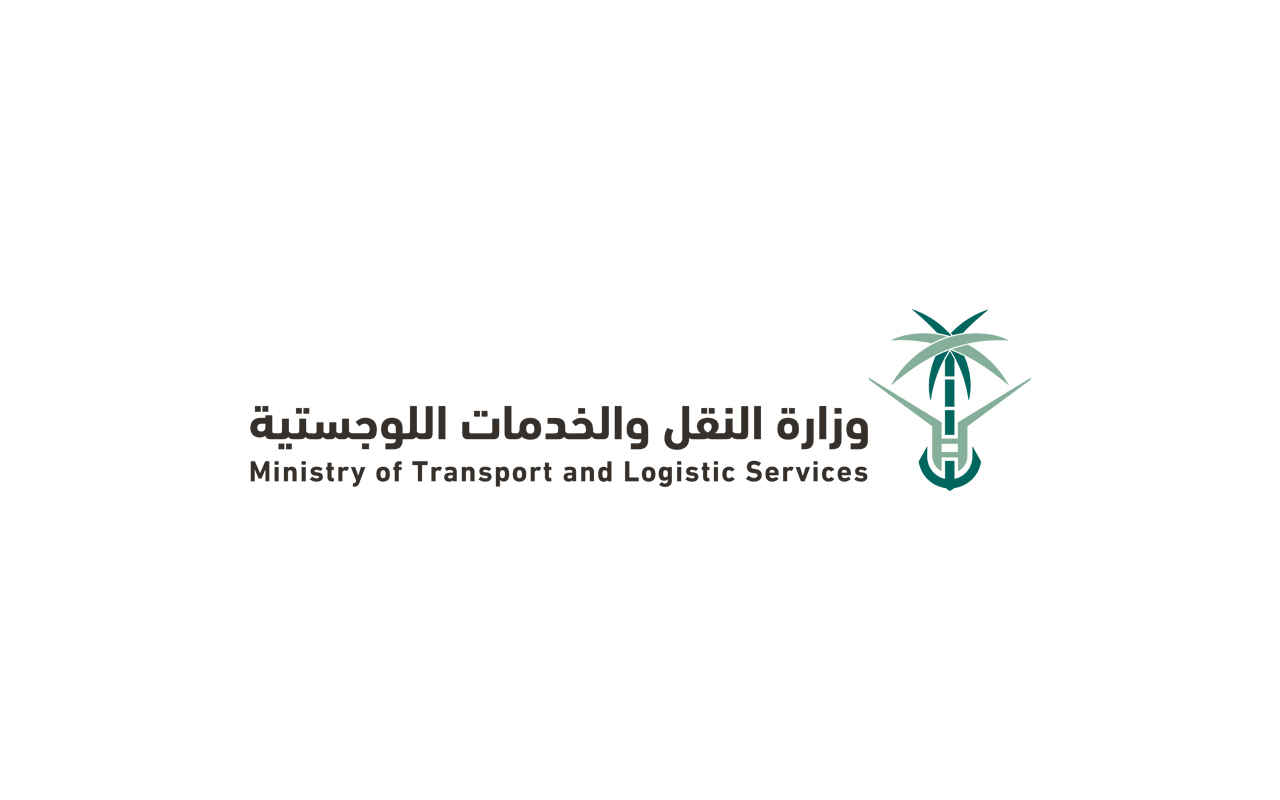Ministry of Transport and Logistic Services
The Ministry of Transport and Logistic Services is the entity responsible for studying, designing, and implementing road works and maintenance. It also coordinates the transport and logistic services system activities within the Kingdom of Saudi Arabia.
Its headquarters is located in Riyadh City, and it serves as the legislative body responsible for the daily planning and implementation activities in the transportation sector, including land, sea, air, and railways, as well as roads and road safety sector, and logistic services sector.
History
The ministry was established in 1953, originally named the Ministry of Transportation. It continued under this name until it was renamed the Ministry of Transport in 2003. In 2021, the Council of Ministers approved the amendment of the Ministry of Transport's name to become the Ministry of Transport and Logistic Services.
Structure
The structure of the Ministry of Transport and Logistic Services includes four deputyships overseeing several departments: the Deputyship for Sector Planning and Development, the Deputyship for Logistic Services, the Deputyship for Sector Empowerment, and the Deputyship for Joint Services.
Transport and logistic services system
The transportation and logistic services system in the Kingdom includes the Transport General Authority, the Roads General Authority, the Saudi Ports Authority, the General Civil Aviation Authority, the National Transport Safety Center, the Saudi Arabia Railways, and Saudi Post.
Objectives
The ministry seeks to achieve a set of goals:
- Ensure safety and security during transportation trips.
- Increase the contribution of the transport and logistic services sector to the gross national product.
- Enable comprehensive implementation of sector strategies and multimodal transport plans.
- Enhance the global competitiveness of the logistic services sector.
- Activate logistics zones throughout the Kingdom.
- Improve legislation and simplify procedures for logistic services.
- Promote the development of non-oil revenues.
- Raise the private sector participation rate.
- Improve spending efficiency.
- Increase the sector’s impact on the environment and society.
- Develop integrated systems and data, and implement digitization.
- Attract, develop, and retain local competencies.
- Manage change and establish an institutional culture based on performance and beneficiary satisfaction.
- Promote transportation and logistic services sector locally and internationally.
- Reinforce the adoption of various future modes of transportation.
The National Transport and Logistic Services Strategy
On June 29, 2021, the Crown Prince and Prime Minister, His Royal Highness Prince Mohammed Bin Salman Bin Abdulaziz Al Saud, launched the National Transport and Logistic Services Strategy. The strategy aims to establish the Kingdom as a global logistics hub connecting the three continents, enhance all transportation services and means, and promote integration in the logistics services system and modern transportation patterns to support the comprehensive development process in the Kingdom.
The National Strategy for Transport and Logistic Services includes a package of enabling megaprojects aimed at achieving economic and social goals. These projects are supported by effective governance models to enhance institutional work within the transport system. This strategy aligns with the ministry's name change from the Ministry of Transport to the Ministry of Transport and Logistic Services, reflecting its commitment to developing human and technical capabilities in the Kingdom's transport and logistic services sector. The strategy aims to strengthen connectivity with the global economy, allowing the Kingdom to leverage its geographical location at the intersection of three continents to diversify its economy. This will be achieved by establishing an advanced logistic services industry, building high-quality service systems, and applying competitive business models to enhance productivity and sustainability in the logistic services sector. It is a key pillar of the Saudi Vision 2030 programs and national ambitions.
The strategy focuses on developing infrastructure, launching several logistics platforms and zones in the Kingdom, implementing advanced operational systems, and enhancing effective partnerships between the government system and the private sector to contribute to achieving four main objectives: enhancing the Kingdom's position as a global logistics hub, improving the quality of life in Saudi cities, achieving balance in the public budget, and improving the performance of the government system.
Initiatives of the Ministry of Transport and Logistic Services
The ministry launched several initiatives, including: the initiative to support specialized warehouses, the initiative to activate the strategic national model for transportation, the initiative to reduce financial fees for third-party logistics companies, the Tannour initiative, the initiative to improve data quality in the ministry, the Obour initiative, and the launch of the Ministry of Transport and Logistics Award for Creativity (second edition). Additionally, a nursery for children was established in the office of the Ministry of Transport and Logistic Services.
